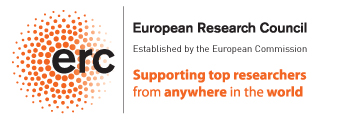Felix Anderl is a Postdoctoral Research Associate on the ERC-funded project The Global as ARTEFACT: Understanding the Patterns of Global Political History Through an Anthropology of Knowledge – The Case of Agriculture in Four Global Systems from the Neolithic to the Present (ARTEFACT) and a member of the Centre for Global Knowledge Studies (gloknos).
Q. Felix, you recently joined the ARTEFACT team. Could you tell us a little about what the project is interested in?
The project wants to trace patterns of global political history through an anthropology of knowledge. We look at agricultural revolutions in quite different stages of human history. I will personally focus on the rather recent example of the “Green Revolution”, especially in South and Southeast Asia. But the general aspiration of the project is to approach socio-political processes from a cross-disciplinary and cross-temporal perspective. We start with the aspect of knowledge and look at how it travels across time and space. Agriculture seems to be a very good case to study these processes because it is so fundamental to our existence, but especially because agricultural knowledges have transformed so strongly over time. These changes, in turn, had vast effects on the ways in which humans have been organizing societies. Therefore, I am confident that our findings can contribute strongly to other fields of social inquiry such as sociology, political science and global history.
Q. How does this subject relate to your own areas of interest? Have you worked on similar topics previously?
I am an International Relations scholar by training, but I have always been interested in historical and sociological aspects of transnational politics rather than a narrow focus on politics between states. Especially, I have been analysing resistance, protest and other forms of critique and how these forms of discontent are brought together across difference in order to form transnational – and sometimes intersectional – social movements. Although I am from a rural area with a lot of cows and farms, it took my research partners from Indonesia to really inspire me to think about agriculture. Hence, my perspective has been shaped by those who resisted against “Green Revolution” policies as they were implemented in Southeast Asia in the course of neoliberal development schemes. Within ARTEFACT, I want to zoom out a little bit and understand the bigger historical significance of the “Green Revolution” with all its epistemological prerequisites and effects on knowledge. This knowledge, in turn, has enormous political consequences, for instance for the question of land ownership, technology, distribution, and most profoundly for what we eat and drink every day.
Q. Which aspect of the project do you find most exciting?
My hunch is that a precondition for making the Green Revolution possible was a particular understanding of the self as a “global subject”. This is especially visible in the underlying belief in progress, universal solutions and place-independent governance measures introduced by the “Green Revolution’s” proponents – who were otherwise relatively heterogeneous. This “globalism” is also what fascinates me in my Post-Doc project ARTEFACT-Solidarity that I will conduct within the mothership of ARTEFACT. There is a certain dialectics at play here: the global provides a necessary horizon in order to relate across difference, but it also has an expansionist, homogenizing tendency. Within ARTEFACT, we approach these questions from a distinctly epistemological perspective that is theoretically ambitious and empirically open. Our team has very diverse takes on these questions, and this open-minded spirit is actually something that I am very excited about.
ARTEFACT is funded by the European Research Council under the European Union’s Horizon 2020 Framework Programme for Research and Innovation (ERC grant agreement no. 724451)




